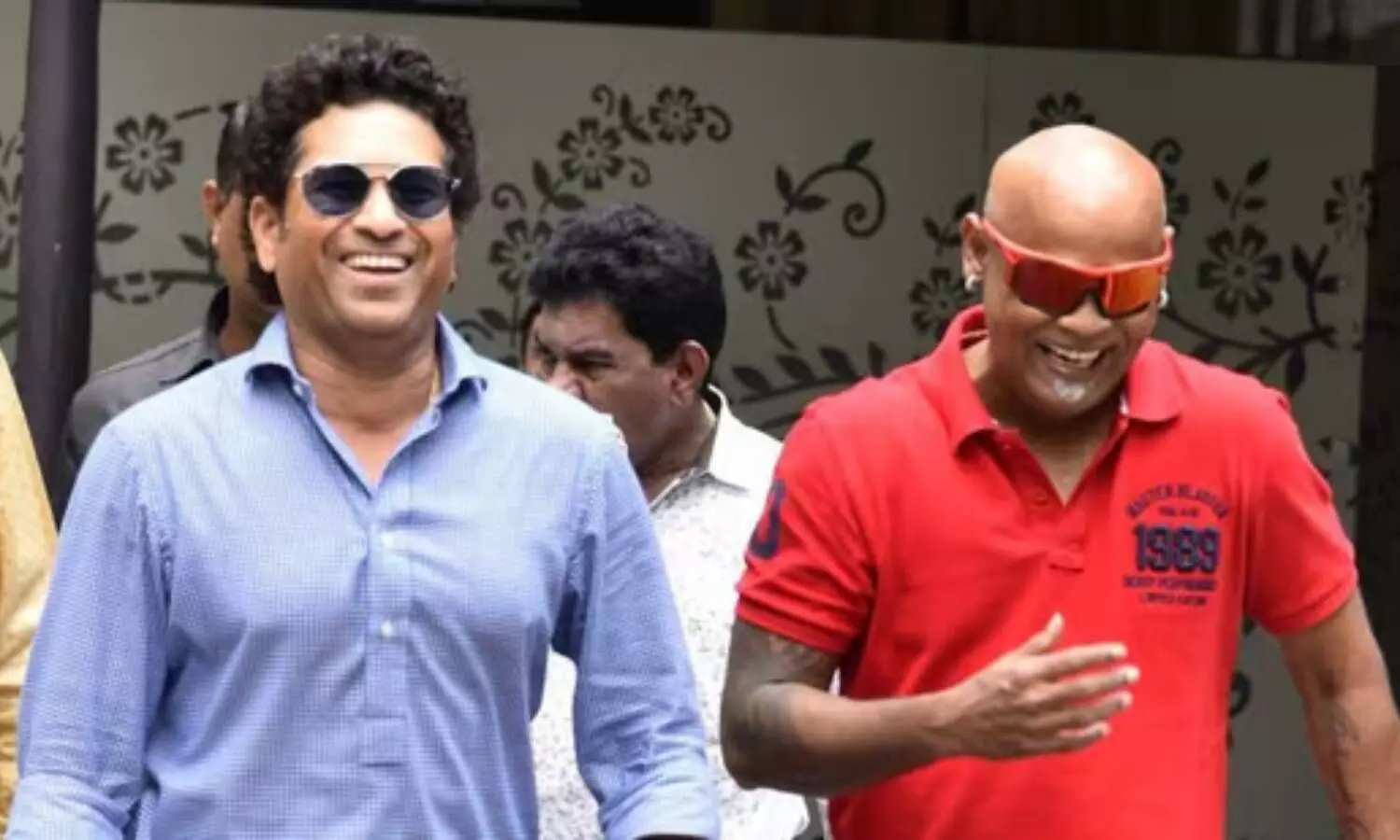The Rise and Fall of Vinod Kambli: A Tale of Talent Lost
Vinod Kambli’s cricketing career, once full of promise, faltered due to off-field excesses. This story highlights his rise, decline, and the missed opportunities despite the influence of his close friend, Sachin Tendulkar.
Kambli’s decline is ultimately his own doing, and no one, not even Sachin Tendulkar, is to blame for his current situation.

If the caption hadn’t mentioned Vinod Kambli, it would have been hard to recognise him. What a tragic fall from grace.
Once half of the most famous schoolboy partnership in cricket, alongside his best friend, he is now a mere shadow of the flamboyant player he once was.
Kambli’s decline is ultimately his own doing, and no one, not even Sachin Tendulkar, is to blame for his current situation.
Their friendship, formed in their school days, blossomed into a successful cricketing bond.
Within a year of their record-breaking 664-run stand for Shardashram School against St Xavier’s College, Tendulkar made his Test debut in Pakistan at just 16 in 1989.
This came after his heartbreak of not being selected for the West Indies tour earlier that year. It took Kambli three and a half more years to join him in the national side, and by 1993, they were playing Test cricket together, living out their shared dream.
Kambli made an impressive start to his career with double centuries – 224 against England and 227 against Zimbabwe – in his first year.
Tendulkar wouldn’t achieve a double century until 1999. However, despite Kambli’s early success, he later expressed frustration, remarking that Tendulkar took the elevator to the top while he had to climb the stairs. While his statement might have been exaggerated, one could understand his sentiment.
By the time Tendulkar scored his first double hundred, Kambli’s career was already starting to falter. Their friendship remained strong, but Kambli’s off-field excesses began to affect his performances. There were rumours of his late-night partying during the 1996 World Cup, and his vulnerability to short-pitched deliveries was increasingly scrutinised. However, it was his prioritisation of a lavish lifestyle over his commitment to cricket that led to his downfall. Despite averaging 54.20 in 17 Tests, Kambli’s last Test match was in November 1995.
While Tendulkar’s illustrious career included 200 Test matches, 51 Test centuries, 100 international centuries, and a World Cup win, Kambli’s career became a cautionary tale, a story of unfulfilled potential and squandered opportunities. The defining image of Kambli’s cricketing career is his tearful reaction after India’s 1996 World Cup semifinal against Sri Lanka was abandoned due to crowd trouble. That emotional moment captured the essence of his cricketing journey.
Over the years, videos have emerged showing Kambli looking disheveled and out of control, seemingly under the influence of alcohol. People, including Tendulkar, reached out to help him, but ultimately, if one doesn’t want to help themselves, others’ efforts can only do so much.
Kambli publicly lamented the lack of support from Tendulkar, but this was unfair. Tendulkar had his own career to focus on until his retirement in 2013. However, Tendulkar did encourage Kambli to return to cricket in 2017, which led to him getting a coaching job at the Mumbai Cricket Association’s Bandra Kurla Complex Academy.
The following year, Kambli mentored Shivaji Park Lions, who finished runners-up in the inaugural Mumbai T20 Premier League. At the prize distribution ceremony, Tendulkar and Kambli shared a spontaneous, emotional embrace, a moment that reminded them of their youth, when they would ignore their coach’s calls and continue batting together for Shardashram.
Despite these opportunities, Kambli’s inability to stick to the straight and narrow led to his continued struggles. Every time a door opened, he seemed to shut it himself. It’s hard not to feel sadness for him, but this sadness is mixed with a sense of frustration. “Why, Vinod, why?” one wants to ask him.
Kambli’s story is a stark reminder of the challenges of managing fame, success, and the sudden influx of wealth. Could anyone have helped him avoid this downfall? Perhaps, but ultimately, it was Vinod Kambli himself who failed to make the right choices. That’s the simple and painful truth.

